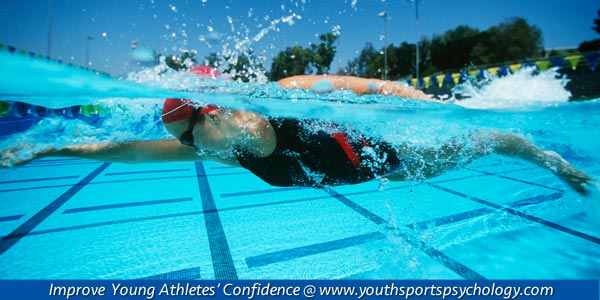
Kids Who Compare Their Skills to Others
This holiday season, it’s a great idea to teach sports kids to focus on what they have to be thankful for–their positive experiences, physical assets, and mental game strengths, to name just a few.
While they’re doing this, they need to understand that it’s a bad idea to focus on others’ strengths–it leads to feelings of intimidation.
That means they shouldn’t focus on teammates who are talented, siblings who out-shine them, high-performing opponents, or kids who are bigger than they are.
Making comparisons to others hurts your sports kids’ confidence and is only a distraction.
Why?
First of all, if sports kids are focusing on others kids’ assets, they’re not concentrating on their own strengths.
Second, if they’re too concerned about their opponents’ big muscles, physical stamina, or reputation, they’re psyching themselves out. We call this self-intimidation.
When these two things happen, their confidence drops.
Of course, you want your sports kids to feel as confident as possible, especially when they’re going into games or competitions.
That’s where thankfulness comes in.
Sports kids need to first of all, be aware of when they’re making comparisons, and second, identify the assets that they’re thankful for-their many strengths.
They could remind themselves of their best moments playing sports, and try to hold onto those memories—especially to help them stop making comparisons.
They could tell themselves that they’re quick on their feet, smart, great team players, and excel at defense, for example. Or they could focus on how well they communicate with their teammates.
Related Articles on Kids’ Mental Game:
- When Athletes Compare Themselves to Others
- Why Young Athletes Shouldn’t Compare Themselves to Others
- Do Your Young Athletes Compare Themselves To Others?
*Subscribe to The Sports Psychology Podcast on iTunes
*Subscribe to The Sports Psychology Podcast on Spotify
The Composed Sports Kid

“The Composed Sports Kid” audio and workbook digital download program for young athletes and their parents or coach helps kids cope with frustration and anger in sports. Help your sports kids learn how to manage expectations and let go of mistakes so they can keep their head in the game.
The Composed Sports Kid system is really two programs in one–one program to train parents and coaches how to help their kids practice composure, and one program that teaches young athletes–ages 6 to 13–how to improve composure, let go of mistakes quickly, have more self-acceptance, and thus enjoy sports more!
